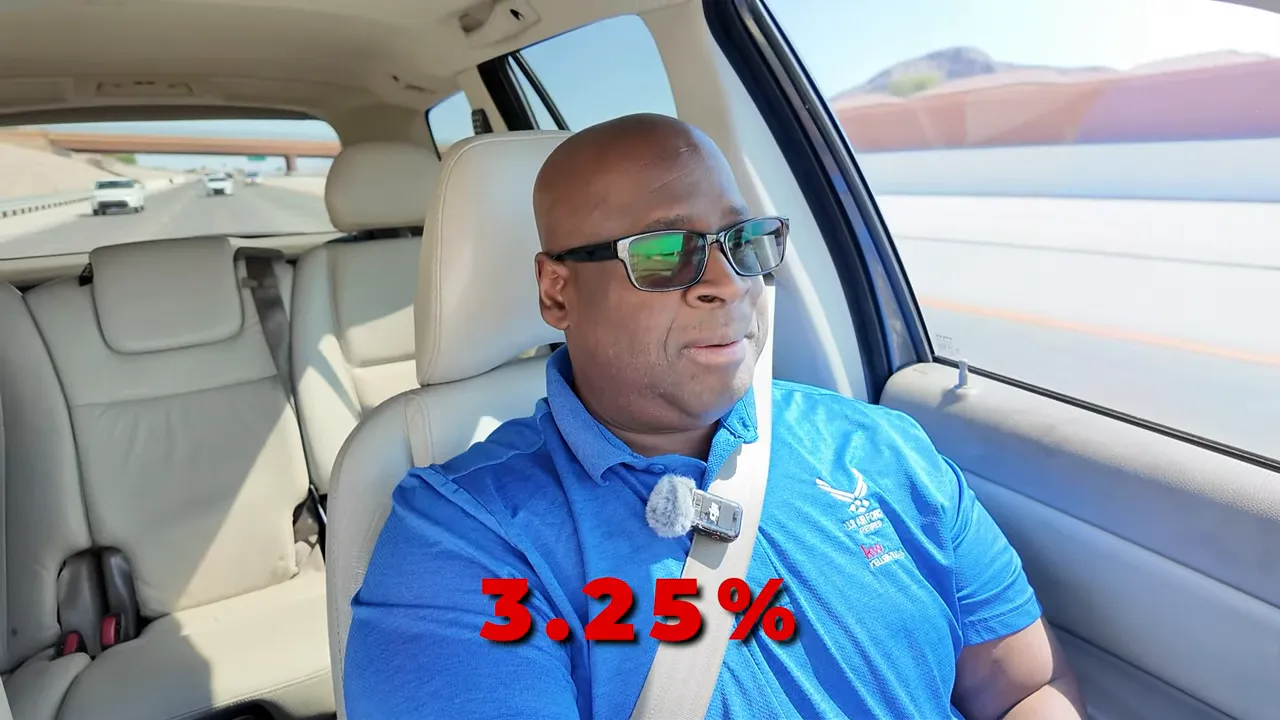The Ugly Truth About Real Estate Sales Tactics

The Ugly Truth About Real Estate Sales Tactics

Hi — I’m Eric "Nuke" Hudson, the guy behind the Carpool Confessions series and a full-time Realtor® living and working in Las Vegas. I made a video with the same name because this topic has been burning a hole in my brain: the sales tactics you’ll encounter in real estate, how they work, and how they can cost you real money if you don’t have your BS detector turned up. If you’re buying or selling in Las Vegas (or anywhere, really), this is the kind of street-level reality I see every day and what I want you to watch out for.

I do Saturday runs dropping my son off and I like to use that time to talk about things that matter to buyers and sellers. This is one of those talks: blunt, practical, and pulled from real incidents I’ve seen in the trenches of the Las Vegas market.
🧮 Real Estate Is a Numbers Game — And Salespeople Know It
Let me be clear: real estate is a numbers game. A lot of what happens is converting leads into appointments, appointments into offers, and offers into contracts. The best salespeople are those who understand conversion math and systems — they’re relentless about follow-up and structure. That’s not inherently evil; a systematic approach is what makes someone successful. The problem is when those systems cross the line into manipulation.
When you’re on the buyer or seller side, realize this: most tactics you’ll see are designed to increase response rates, to trigger emotional reactions, or to make decisions based on fear of missing out (FOMO). The trick is learning to recognize those triggers and respond from a place of information instead of impulse.
📲 The “Is This [Name]?” Text — A Classic Sales Trick

One simple example: you get a text that just says, “Is this Eric?” with a question mark. That’s not random. That’s a sales technique. It’s short, personal, and increases the likelihood that you’ll reply. That text works because it looks casual, but it’s engineered.
I recently got one from a solar installer. I replied facetiously — “Is this another salesperson using the old tactic?” — and he played it straight. Whether the sender is an installer, a lender, or an agent, anything that looks like it’s designed to pull you into a conversation should make you pause and ask, “What’s their endgame?”
💸 Lenders and Origination Fees — Know What You’re Signing Up For

One of the things I harp on a lot is lender fees — origination fees, junk fees, and the like. I had a lender reach out to “educate” me about why origination fees benefit the buyer. No, thanks. I’ve been doing real estate for over a decade and I can read a disclosure statement.
Case in point: when I shopped for a home equity loan, one lender repeatedly pushed a full refinance instead. He offered, “I can get you a refi at 5%.” I was incredulous. My original loan was at 3.25%. A 5% refinance would have been worse for me, not better — and the lender knew it. Why push it? Because lenders make more money on a refi than on a HELOC or home equity loan. They were selling the product that paid them the most, not the product that made sense for my situation.
I eventually saw the paperwork he sent — $35,000 in fees. Let that sink in. Thirty-five thousand dollars in fees for a refinance that was unnecessary given my existing rate. That’s not advice. That’s sales.
🏦 When Lenders Are Biased — Question the Motive

Sometimes lenders will warn you away from a program not because it’s bad for you, but because it’s bad for their commission. I sat next to a top agent on a bus trip who had just placed buyers into a self-funded program that lenders couldn’t make money from. The lender’s reaction? “Stay away from that program.” Why would they say that if the program didn’t benefit them?
Always ask: who benefits from this recommendation? If the person making it stands to profit, or stands to lose, their advice may be colored.
🔖 The 1% Listing Gimmick — Marketing vs. Reality

We all see the ads: “I’ll sell your house for 1%.” Sounds great until you sit down with the agent and realize the pitch is a hook. I sat next to the owner of one of those 1% companies. He laughed and said plainly, “I don’t sell houses for 1%.” The hook works because you let greed get to you: the idea of saving on commission is powerful.
Here’s the catch: when you meet with the agent, they’ll show you what you get — or don’t get — for 1% versus a more traditional commission. Once you see the service gap, most sellers choose the fuller commission. The ad is designed to get you through the door; the meeting is designed to sell you up. That’s not illegal — it’s marketing. But don’t think it’s altruistic. These models are designed so the company walks away a winner and you feel like you tried to “beat the system.”
📈 “Guaranteed Sale” Promises and the Fine Print
There are also more theatrical promises: “I’ll buy your house if it doesn’t sell,” or “Guaranteed sale.” The reality is these programs include a ton of conditioning clauses and may obligate you to buy back services or accept a lower net after fees. I won’t name names, but there are large international companies structured around guarantees — and guess how often they actually end up buying the house? Rarely.
These guarantees are designed to address seller anxiety and sell you on speed. If you consider one, read the contract closely and understand every scenario where the “guarantee” triggers. Most sellers would be surprised how many contingencies and fees are built into those promises.
⚠️ When a Listing Price Looks Too Good — “Fat Finger” Pricing
Another sales tactic is simply human error — or what some agents call “fat finger pricing.” A house listed at $265k in a neighborhood of $400k homes gets 100 inquiries. People get excited and call, “I want to buy it!” Only to find out the agent typed the wrong number. Sometimes it’s a mistake, sometimes it’s calculated to drum up attention.
Either way, the lesson is the same: if a deal looks too good — it probably is. Pause. Don’t let excitement blind you. Call around. Check comparable sales. If you’re represented, ask your agent to verify facts before you get emotionally attached.
📣 “Multiple Offers Received” — Puffery in the MLS
MLS puffery drives urgency. For a while, there was a company that stamped “Multiple offers received” on every single listing. People saw it and assumed scarcity — they acted faster and often higher. The local board eventually changed rules so you can only mark “multiple offers” if you really have them.
But people will still find ways to create the appearance of competition. I’ve seen sellers’ agents call potential buyers to say, “Hey, we just got an inquiry, it’s multiple offers now.” Sometimes it’s true. Sometimes it’s manufactured to get you to bring your highest and best. That’s sales pressure — and it works.
🤥 Agents Lying About Offers — How It Plays Out

I once had an agent tell me there were no offers on a listing, then flip and say it became a multiple-offer situation. My client pulled back because we didn’t want to play that game. Fifteen minutes later, the agent called back and said there were no other offers after all — the same agent who had just told us to bring highest and best.
That’s the kind of behavior that makes me despise lying in this business. It hurts buyers, it inflates prices, and it rewards manipulative behavior.
💔 The Veteran Sob Story — When Emotion Is Weaponized

Here’s a gut-punch example that still bothers me. I got a call from a buyer’s agent who was practically crying about how her clients — veterans — could only afford X amount. The seller was an older woman who said she’d sell to veterans at a discount. My clients were willing to honor that and the seller agreed. The buyers ended up not making an offer and later bought a different house for $100,000 more because of lies from that buyer’s agent. That is unethical, and it’s the kind of lying that cuts deep because it preys on goodwill.
People hate being lied to... until they benefit from the lie. Sellers loved the lie that helped them get more. Buyers hated being misled when it worked against them. Hypocrisy is everywhere. My stance is simple: I hate liars. If you want to build long-term business and trust, lying is the fastest way to burn it all down.
🧭 How to Spot Sales Tactics — A Checklist
If you want to protect yourself, here are practical, actionable ways to spot manipulative sales tactics:
- Question the urgency: “Multiple offers” claims, “highest and best” demands, and time-limited windows — ask for proof of the other offers.
- Follow the money: If someone pushes a product or program, ask who benefits. Lenders, agents, or companies will usually be clear about where their profit margin is. If the recommendation benefits them and not you, dig deeper.
- Verify listings: If a price looks wrong, verify comps and reach out to the listing agent early. Don’t buy into hype until you confirm facts.
- Read contracts before showing emotion: Guarantees and buy-back clauses often have hidden triggers. Read the fine print or have your agent explain it in plain English.
- Be suspicious of simple texts: One-sentence texts that seem personalized are often marketing scripts. If you want to engage, ask direct questions about who they are and what they want.
- Get a second opinion: If a lender offers a product that seems to cost you more (e.g., higher interest or big fees), shop around and bring it to another trusted professional for review.
🛡️ What I Do Differently — My Real Estate Ethic
I don’t see myself primarily as a salesperson. I’m a retired military officer who helps people through the buying and selling process. That background shaped me: I value duty, clarity, and straightforwardness. I don’t want to trick you into a deal that favors me at your expense. My job is to protect my clients’ interests.
That doesn’t mean I’m not competitive or that I don’t use systems. Of course I do. But systems without ethics are weapons. I prefer systems that create predictable outcomes for clients and transparency about fees and trade-offs.
📝 Real Examples & What I Would Have Done
Let me break down a couple of the stories I shared and what I would advise if you were my client:
- The Refi Push: If a lender tells you to refinance, ask them to show a net-benefit analysis comparing your current mortgage vs. the refinance over the time you plan to stay in the home. Ask for all fees itemized. If the numbers don’t make sense, walk.
- The 1% Listing Pitch: If someone advertises a low commission, demand a written scope of services. What marketing will they do? What listing exposure will you get? If something feels missing, compare with full-service offerings and remember the cheapest option isn’t always the best net for you.
- Multiple Offers Claims: Ask your agent to request proof from the listing agent. Not every seller or agent plays fair, but a professional agent will verify before asking you to overpay or act rashly.
- Sob Stories and Soft Manipulation: Don’t let emotion blind you to price and conditions. If you genuinely want to favor someone for humanitarian reasons (veterans, first responders, etc.), do it consciously and document it so it’s not used as a bargaining chip later.
🔧 Tools I Recommend to Protect Yourself
- Get pre-approved (not just pre-qualified): Pre-approval shows real buying power and prevents surprises later.
- Use a trusted local agent: Someone who knows the MLS rules and local quirks can spot manipulative tactics fast.
- Shop lenders: Don’t accept the first “helpful” lender that calls — compare rates, fees, and APRs.
- Ask for itemized estimates: Closing disclosure and loan estimates should be clear. If you see big fees without justification, ask why.
- Get comps and market data: Always verify listing prices against sold comparable properties. If a price is out of line, it’s likely a trap or a typo.
💬 A Few Hard Truths
I’ll tell you straight: people are going to push products that benefit them. Agents, lenders, marketers — they’re all trying to get you to take action that helps them. That’s sales. Not every sales tactic is malicious, but many are built to exploit human impulses: greed, fear, urgency.
What separates professionals from predators is transparency and a willingness to put the client’s interest first. I’ve worked with agents who are scrupulous and with lenders who are honest. Most of the time you can find someone doing right if you look. But you have to be skeptical, ask questions, and insist on proof.
“You get set up perfectly for me to come in and talk about it on my next Carpool Confession.”
That line isn’t just funny — it’s a reminder that the world of real estate thrives on conversation. My hope is that after you read this, you’re better prepared for those conversations and less likely to walk into a sales trap.
📞 If You’re Moving to Las Vegas — I’ve Got Your Back

If you’re thinking about moving to Las Vegas, or you want help navigating the local market, I’m available. Call, text, or email — whatever gets you comfortable. I offer free consultations, and I’ll give you straightforward answers without the pushy sales spin. My goal is to keep the lights on for my military brothers and sisters and for everybody else who needs an honest, no-nonsense guide through one of the most stressful financial transactions most people ever face.
🧾 Final Takeaways — How to Stay Sharp
- Always follow the money. Ask who benefits from any recommendation.
- Demand proof for claims like “multiple offers” before acting.
- Shop lenders and compare itemized fees, not just monthly payments.
- Read contracts and guarantees carefully — they often contain caveats.
- Work with a local, trusted agent who will protect your interests.
Sales will always be part of real estate. That’s not the problem. The problem is when sales tactics replace service and honesty. If you want to make better decisions, train yourself to spot urgency for urgency’s sake, marketing for what it is, and consulting for what it should be: honest, factual, and in your best interest.
🔚 Closing — My Promise
That’s my two cents. I tell these stories because I’ve lived them. I hate liars. I hate people who put profit ahead of people. And I believe you deserve better. If you want someone who will tell it to you straight, help you understand the numbers, and fight for your position with clarity and honor — I’m here.
Alpha, Mike, Fox, Trot — to all my military brothers and sisters, I’ve got you. If you need anything — call, text, email — the info is below and I’ll keep the lights on.
Thanks for reading. If you want to dig further into any of the examples I mentioned (1% listings, refi traps, MLS puffery), reach out and I’ll walk you through real numbers and local rules so you can see exactly how these tactics play out in Las Vegas.
Categories
Recent Posts











